Food for thoughts
June 15, 2021
Thesaurus : 05. CJCE - CJUE
Full reference: CJEU, Grand chamber, Judgment Facebook Ireland e.a. v. Gegevensbeschermingsautoriteit, C-645-19, June 15, 2021
Read the abstract of the judgment done by the Court
May 12, 2021
Thesaurus : Doctrine
► Référence complète : A. Beckers, , "L’image juridique évolutive des chaînes de valeur mondiales", Introduction au numéro spéciale les Chaines de Valeur mondiales, Revue internationale de droit économique, 2021, t. XXXV(4), 5-18.
____
🦉Cet article est accessible en texte intégral pour les personnes inscrites aux enseignements de la Professeure Marie-Anne Frison-Roche
________
April 21, 2021
Thesaurus : Doctrine
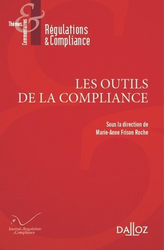
► Full Reference : J.-B. Racine, "Propos introductifs. La prégnance géographique dans le choix et l'usage des outils de la Compliance" ("Introductory remarks. Geographical dominance in the choice of Compliance Tools"), in M.-A. Frison-Roche (ed.), Les outils de la Compliance, coll. "Régulations & Compliance", Journal of Regulation & Compliance (JoRC) and Dalloz, 2021, p. 157-164.
____
📕read a general presentation of the book, Les outils de la Compliance, in which this article is published
____
► Summary of the article (done by the Journal of Regulation & Compliance): The author correlates Compliance Law and "Global Law" and underlines the balance of power that the former expresses, in particular on the part of the United States and even if it therefore "tends to become universal" , the particularities remain, if only in the implementation.
Focusing more particularly on "Compliance Tools", a comparison is made between several contributions of the volume, to establish that, in a definitive and desirable way, the Compliance mechanisms include both a global dimension and a local dimension.
________
March 31, 2021
Conferences

 Full reference: Frison-Roche, M.-A., Compliance et arbitrage. Rapport de synthèse: un adossement (Compliance and Arbitration: a Backing. Conclusion), in Frison-Roche, M.-A. & Racine, J.-B., Compliance et Arbitrage (Compliance and Arbitration), Colloquium co-organised by the Journal of Regulation & Compliance (JoRC) and the Centre de recherches sur la Justice et le Règlement des Conflits (CRJ) of Panthéon-Assas University (Paris II), with the support avec the International Court of Arbitration, Paris, 31st of March 2021
Full reference: Frison-Roche, M.-A., Compliance et arbitrage. Rapport de synthèse: un adossement (Compliance and Arbitration: a Backing. Conclusion), in Frison-Roche, M.-A. & Racine, J.-B., Compliance et Arbitrage (Compliance and Arbitration), Colloquium co-organised by the Journal of Regulation & Compliance (JoRC) and the Centre de recherches sur la Justice et le Règlement des Conflits (CRJ) of Panthéon-Assas University (Paris II), with the support avec the International Court of Arbitration, Paris, 31st of March 2021
_____
Read the program of this colloquium
See Marie-Anne Frison-Roche's conclusion in video (in French, with English subtitles)
These notes of the conclusion have been written as the colloquium took place.
See the video of the entire colloquium (in French, with English subtitles)
___
This colloquium is part of the Cycle of colloquium 2021 organized by the Journal of Regulation & Compliance (JoRC) and its partners around the topic Compliance Juridictionnalization.
This manifestation is in French but the interventions will be the basis for a specific chapter of the English collective book directed by Marie-Anne Frison-Roche, Compliance Juridictionnalization, co-published by the JoRC and Bruylant.
An equivalent book in French, La Juridictionnalisation de la Compliance, directed by Marie-Anne Frison-Roche, will be co-published by the JoRC and Dalloz.
Read the notes established for the conclusion below ⤵️
March 22, 2021
Compliance: at the moment

March 17, 2021
Conferences
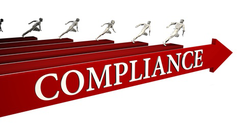
 Full reference : Frison-Roche, M.-A., The Potential of Compliance Law (Les potentialités du Droit de la Compliance), conference given to Muriel Fabre-Magnan's students, Paris I, 17th of March 2021.
Full reference : Frison-Roche, M.-A., The Potential of Compliance Law (Les potentialités du Droit de la Compliance), conference given to Muriel Fabre-Magnan's students, Paris I, 17th of March 2021.
_____
This conference has been designed for Paris I's students following a Law cursus, specialized in Law of obligations and especially in Tort Law.
It therefore aims to show the technical content of Compliance Law and what it can become.
It has been followed by a debate with students.
Summary: Compliance Law is a branch of Law in the process of being born. We can be sure of its existence in the French positive Law, through the technical examination of laws called "Sapin 2" (2016) and "Vigilance" (2017). It appears at radically new. It is the reason why it is perceived as an attack, especially from United-States and we rather use legal knowledge to counter it. But if we study the historical reasons of its adoption in the United-States and the "monumental goals", whether they are negative (what should not appear in the future) or positive (what should appear in the future), we can measure that this Law, which is essentially Ex Ante could be the means through which scattered but legitimate public authorities and powerful but illegitimate big firms could ally. Therefore potentially Compliance Law could be the worst, simple tool of obedience (mechanical "conformité") or the best: what through which we could do something face to global problems, like global warming, or what we would accept to look in the face: the care for others.
Read the slides on which this conference was based (in French)
March 2, 2021
Thesaurus : 08. Juridictions du fond
Full reference: Tribunal administratif de Paris (Paris administrative court), 4th section, 1st Chamber, Oxfam France, Notre Affaire à tous, Fondation pour la Nature et l’Homme et Greenpeace France, 3rd of February 2021, n°1904967, 1904968, 1904972, 1904976/4-1
Read the press release from Tribunal administratif de Paris (in French)

Feb. 8, 2021
Publications

 ► Référence complète : Frison-Roche, M.-A., L'invention de la vigilance : un terme nouveau pour une Responsabilité en Ex Ante, Document de travail, février 2021.
► Référence complète : Frison-Roche, M.-A., L'invention de la vigilance : un terme nouveau pour une Responsabilité en Ex Ante, Document de travail, février 2021.
____
Ce document de travail sert de base à une conférence donnée à Oslo le 9 février 2021.
Pour aller plus loin, ➡️La Responsabilité Ex Ante, 2022
____
Lire ci-dessous le document de travail⤵️
Feb. 3, 2021
Teachings : Banking and Financial Regulatory Law - Semester 2021
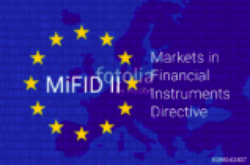
Résumé de la leçon : L'Europe est avant tout et pour l'instant encore une construction juridique. Elle fut pendant longtemps avant tout la construction d'un marché, conçu politiquement comme un espace de libre circulation (des personnes, des marchandises, des capitaux). C'est pourquoi le Droit de la Concurrence est son ADN et demeure le coeur de la jurisprudence de la Cour de justice de l'Union européenne, qui tient désormais l'équilibre entre les diverses institutions, par exemple la Banque Centrale Européenne, dont les décisions peuvent être attaquées devant elle. Mais aujourd'hui le Droit de l'Union européenne se tourne vers d'autres buts que la "liberté", laquelle s'exprime dans l'immédiat, notamment la "stabilité", laquelle se développe dans le temps. C'est pourquoi la Banque y prend un si grande importance.
En outre, face aux "libertés" les "droits" montent en puissance : c'est par les institutions juridiques que l'Europe trouve de plus en plus son unité, l'Europe économique et financière (l'Union européenne) et l'Europe des droits humains (le Conseil de l'Europe au sein duquel s'est déployée la Cour européenne des droits de l'Homme) exprimant les mêmes principes. C'est bien à travers une décision prenant appui sur le Droit de la concurrence que la Commission européenne le 18 juillet 2018 a obligé Google à concrétiser le "droit d'accès" à des entreprises innovantes, apte à faire vivre l'écosystème numérique, tandis que le Régulateur financier doit respecter les "droits de la défense" des personnes qu'il sanctionne.
Aujourd'hui à côté de l'Europe économique se développe en même temps par des textes une Europe bancaire et financière (on ne sait pas si par le Droit - par exemple le droit de la propriété intellectuelle - existera une Europe industrielle).La crise a fait naître l'Europe bancaire et financière. L'Union bancaire est issue de Règlements communautaires du 23 novembre 2010 établissant des sortes de "régulateurs européens" (ESMA, EBA, EIOPA) qui donnent une certaine unité aux marchés financiers qui demeurent nationaux, tandis que les entreprises de marché, entreprises privées en charge d'une mission de régulation, continuent leur déploiement selon des techniques de droit privé. L'Union bancaire est née d'une façon plus institutionnelle encore, par trois piliers qui assurent un continuum européen entre la prévention des crises, la résolution des crises et la garantie des dépôts. En cela, l'Europe bancaire est devenue fédérale.
Sur les marchés de capitaux, des instruments financiers et des titres, l'Union européenne a utilisé le pouvoir que lui confère depuis la jurisprudence Costa et grâce au processus Lamfallussy d'une sorte de "création continuée" pour injecter en permanence de nouvelles règles perfectionnant et unifiant les marchés nationaux. C'est désormais au niveau européen qu'est conçu la répression des abus de marché mais aussi l'information des investisseurs, comme le montre la réforme en cours dite "Prospectus 3". A l'initiative de la Commission Européenne, les textes sont produits en "paquet" car ils correspondent à des "plan d'action " . Cette façon de légiférer est désormais emprunté en droit français, par exemple par la loi dite PACTE du 29 avril 2019. Cette loi vise - en se contredisant parfois - à produire plus de concurrence, d'innovation, à attirer l'argent sur des marchés dont l'objectif est aussi la sécurité, notion d'égale importance que la liberté, jadis seul pilier du Droit économique. Conçue par les but, La loi est définitivement un "instrument", et un instrument parmi d'autres, la Cour de Justice tenant l'équilibre entre les buts, les instruments et les institutions.
La question du "régulateur" devient plus incertaine : la BCE est plus un "superviseur" qu'un "régulateur" ; le plan d'action pour une Europe des marchés de capitaux ne prévoit pas de régulateur, visant un capitalisme traditionnelle pour les petites entreprises (sorte de small businesses Act européen)
Revenir à la présentation générale du cours
Se reporter au plan général du cours
Utiliser les matériaux ci-dessous pour aller plus loin et préparer votre conférence de méthode.
Updated: Jan. 14, 2021 (Initial publication: Dec. 14, 2020)
Conferences
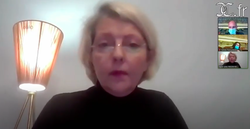
► Full Reference : Frison-Roche, M.-A., The Economic Attractiveness of Impartiality ("L'attractivité économique de l'impartialité"), in ""Economic Attractiveness, Judge Office and Impartiality. Thinking the judge Office" ("L'attractivité économique, l'office du juge et l'impartialité. Penser l'office du juge"),
____
🎥 watch the conference (in French with English subtitles)
____
📝 read the colloquium program ( in French)
📝 see the general program of the cycle on the Judge Office.
____
📝 read François Ancel's article of 14th of January 2021 in the Receuil Dalloz and which report this colloquium (in French)
📝 read the Working Paper, basis of this conference.
This Working Paper is significantly different from the conference because it was conceived befor the colloquia cycle beginning. In addition, since this manifestation was a Round Table, the conference has taken more into account previous conferences and what said the other two speakers.
📊 see the slides, basis of the conference (in French)
The slides could not be shown during the conference. Orally, it was appropriate to more develop the introductory remarks for emphasizing the human and unique dimension of the Judge Office, expected in economic matters. As a result, the second part of the conference was not given orally, so slides therefore remain the only media available.
____
► Summary of the conference : To fit into the ambition of this general colloquia cycle, which is to "Think the Judge Office" and in this round table which apprehends the imperative of economic attractiveness of this office, firstly emerges the seemingly contradictory relationship between this imperative and the distance that the judge must maintain. Thus it is often asserted that the judge should be internalized at this point in the "places", - an economic concept of great scope (to which the first part of the introduction is devoted, defining the "place" at the same time as a closed and porous space and as a "systemic litigant" -, that he/she should ipso facto lose his/her distance, that is to say his/her impartiality. As places are in competition, even if weighing on one hand the effectiveness of the place, and on the other hand the impartiality of a judge who is external to this place - Judge referring to the Law , Impartiality would necessarily emerge weakened. It would then be necessary on a case-by-case basis to get the judge to give the desired concessions...
The conference aim is to take the opposite position and to state that the Place - in particular because they must be strongly distinguished from the Markets, of which they were the ancestors - require a Judge, who is at the same time "singular", that is to say with a personality, a face, opinions, and in distance so that his/her imagination does not surprise Place. Indeed, these require a human Justice, and a not mechanical one and singular judges, of whom the juge des référés or the arbitrator are the epigone, meets this need. But for reducing their "margins of discretion", how Economy qualifies the Impartiality of a person who can never be neutral, the singular Judge's Office must be inserted into mechanisms reducing these margins. In this way, the Place may reach a Judge who is always more impartial, and in doing so the Place becomes always more attractive.
To achieve this in practice, the place expresses two legitimate expectations, as a "systemic litigant", whose satisfaction increases and the singular Judge's Impartiality and increases the Attractiveness of the Place as a space. This clearly shows that the Place's Attractiveness and the Judge's Impartiality, because judges are inserted into procedures, into institutions and into a "jurisdictional family", are not only not contradictory, but are on the contrary convergent, one fueling the other.
Concretely, and judicial practice shows it, it is necessary to consolidate the particular Judge's Impartiality by inserting him/her into collective processes. As it is necessary to promote a radiance of Impartiality by strengthening the "jurisdictional family".
To consolidate the singular Judge's Impartiality by inserting him/her into collective processes, it is necessary to admit without hesitation the subjectivity of the judge, to seek it even. The reduction of the margins of discretion, definition of impartiality, being obtained by the inclusion of the judge in a procedure of which he /her alone is the master but in which he/her is not alone. This has the technical consequence that he/her is himself/herself in an adversarial debate, not only during the proceedings, but also before (in the media), inside the judgment (and the decision of the Criminal Chamber of 25 November 2020 is a model of that) and after the judgment. By that, the Judge shows that by his/her office he/she is in the future, as climate justice will show. In addition, to limit his/her margins of discretion, the singular judge must fit into a rational principle of coherence, vertical and horizontal. Vertical coherence, because he/she integrates what it is said and the technique of the "determining opinion" is to be encouraged, the singular judge having to avoid it only if he/she has "strong reasons" to do it. This is to follow this general rule Comply or Explain (which is the very opposite of blind obedience). Horizontal coherence, because the singular judge either sticks to what he/she said, estoppel also being a rule of logic. But above all, the institution must extract as much as possible from " institutional doctrines", by all means, of which the annual reports are an example.
To consolidate the singular Judge's Impartiality by strengthening the notion and reality of the "Jurisdictional Family", it is necessary to have of it a broader conception, which could lead to "guidelines" common to various jurisdictions, and a stronger one, by integrating those surrounding the judge to lead to judgment. In this, the procedure before the Court of Justice of the European Union, working on a common file, is a model. If this community were even stronger, the Judge Office would be even more useful than it is already in the digital space.
Thus, Judges who are always human, always diverse, always singular, who listen, consider and adjust to the situation, who within a Jurisdictional Family fit into an Institutional Doctrine which transcends and supports them but which they transform if there is a strong reason to do so, a reason always expressed said: this is the embodied Impartiality that makes an economic and financial Place attractive.
________
Jan. 11, 2021
Interviews

Full reference: Frison-Roche, M.-A., "Let's Use the Power of GAFAMs in the Service of General Interest!" ("Utilisons la puissance des GAFAMs au service de l'intérêt général!"), interview done by Olivia Dufour, Actu-juridiques Lextenso, 11st of January 2021
Read the interview (in French)
Summary of the interview by Olivia Dufour:
Marie-Anne Frison-Roche, Professor of Regulation and Compliance Law, reported to the government in 2019 about Internet governance. For this expert, giving a disciplinary power to GAFAMs is the only effective solution. And the suppression of Donald Trump's account is not likely to call this analysis into question.
The three questions (translated in English here by ourselves) asked by Olivia Dufour are:
- The deletion of Donald Trump's Twitter account arouses strong emotions on social networks, and not only among his supporters. What do you think about this ?
- However, this incident does raise concern. Are we not giving too much power to these private companies? This raises the question in France of the relevance of the Avia system ...
- Should we therefore resolve by default to give our freedoms to private and opaque mastodons?
Read the answers to these three questions (in French)
To go further, especially about the logics that guide the Avia system, see:
- Frison-Roche, M.-A., "Hate on internet: we need to responsibilize digital operators" ("Haine sur internet: il faut responsabiliser les opérateurs numériques"), 2020
- Frison-Roche, M.-A., The contribution of Compliance Law to Internet Governance, report to Government, 2019
Dec. 31, 2020
Thesaurus : Doctrine
Full reference: Zittrain, J. L., "Gaining Power, Losing Control", Clare Hall Tanner Lecture 2020, 2020
Read the intervention's report
This intervention is divided in two parts:
- Between Abdication and Suffocation: Three Eras of Governing Digital Platforms
- With Great Power Comes Great Ignorance: What’s Wrong When Machine Learning Gets It Right

Updated: Dec. 21, 2020 (Initial publication: Dec. 11, 2019)
Publications

This working document serves as the basis for two conference given in the symposium made under the direction of Lucien Rapp, Les incitations, outils de la Compliance ("Incitations: Compliance Tools").
Référence : Frison-Roche, M.-A., Compliance et Incitations : un couple à propulser, in Faculté de droit de l'Université Toulouse-Capitole, et Journal of Regulation & Compliance (JoRC),Les incitations, outils de la Compliance, 12 décembre 2019, Toulouse.
This Working Paper has been the basis for two conferences in the colloquium in Toulouse (France) under the scientific direction of Lucien Rapp, about Les incitations, outils de la Compliance ("Incitations, as Compliance Tools"), on December 12, 2019, the first one about The sanction as incitation and the second one about Incitations and Compliance Law (synthesis of this colloquium). sur le thème de la sanction comme incitation, la seconde en synthèse de ce colloque sur
After it has been the basis for the article, to be published in the books Les outils de la Compliance and Compliance Tools in the Series Régulations & Compliance.
Read a general presentation of this book.
____
Summary of this Working Paper: Compliance and Incentives appear at first glance to be totally opposite. Not only because sanctions are at the heart of Compliance and that sanction is associated with constraint while incentive is associated with non-constrained
To do this, the concept of “incentive Compliance” should be developed. This concept is not only appropriate, but it is necessary in a new conception of Sovereignty. For example for the digital Europe.
_________
Read the developments below.
Voir cette question analysée d’une façon autonome, Frison-Roche, M.A., Résoudre la contradiction entre « sanction » et « incitation » sous le feu du Droit de la Compliance, 2020.
Dec. 15, 2020
Thesaurus : Soft Law
Full reference: AMF / AFM, Position paper : Call for a European Regulation for the provision of ESG data, rating, and relate services, 15th of December 2020
In this document, AMF and AFM analyses the perspective to supervise ESG rating agencies and the perspective to make ESMA supervisor of these agencies.
Dec. 9, 2020
Teachings : Generall Regulatory law

Au sens juridique, la responsabilité désigne le fait de "répondre", mais au sens commun la responsabilité désigne le fait d'avoir du pouvoir et de l'exercer dans les marges que donne la liberté d'action. Les deux sens doivent converger dans un système libéral.
Puisqu'il a été montré que les Régulateurs sont les maîtres des secteurs, ils seraient donc logiques qu'ils sont responsables. Mais, c'est encore un point commun qu'ils ont avec les juges, parce qu'ils sont consubstantiellement indépendants, ils ne peuvent pas voir leur responsabilité engagées. Cependant le droit positif a posé le principe de la Responsabilité de l'Etat du fait de leur Autorités de Régulation, tandis que leur irresponsabilité politique comparée à l'ampleur de leurs pouvoirs a souvent était le ferment de leur contestation.
Par ailleurs, le mécanisme général de la responsabilité est utilisé, notamment parce que les mécanismes du Droit de la Régulation sont eux-mêmes défaillants. En effet, comme l'a montré Alain Supiot, l'on peut "prendre la responsabilité au sérieux" et, si l'on applique cette perspective plus particulièrement à l'espace numérique, cela permettra de pallier les défaillances de la Régulation publique elle-même. En effet, il existe des sortes de "trous noirs régulatoires", dont relève encore notamment le numérique.
Mais cette violence de la responsabilité ainsi conçue ne doit pas s'appliquer à tous les opérateurs économiques. En effet, cette responsabilité "proactive" qui dépasse le mécanisme de l'Ex Post vers l'Ex Ante ne doit s'appliquer qu'aux opérateurs régulés, éventuellement aux "opérateurs cruciaux, pour qu'à travers leur personne, les buts de la régulation soient atteints (mécanisme de compliance). Les opérateurs ordinaires doivent demeurer dans un mécanisme Ex Post, la responsabilité ne devant pas engendrer des "devoirs généraux de prise en charge d'autrui", car l'entreprise ordinaire n'est pas de même nature que l'État.
D'une façon spécifique et au besoin :
D'une façon plus générale et au besoin :
- Accéder au plan général du Cours de Droit Commun de la Régulation.
- Se reporter à la présentation générale du Cours de Droit Commun de la Régulation.
- Consulter le Dictionnaire bilingue de Droit de la Régulation et de la Compliance.
- Consulter la Newsletter MAFR - Law, Compliance, Regulation
Consulter ci-dessous la bibliographie spécifique à cette leçon portant sur la Responsabilité et la Régulation:
Dec. 8, 2020
Publications
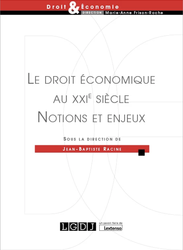
🌐follow Marie-Anne Frison-Roche on LinkedIn
🌐subscribe to the Newsletter MAFR Regulation, Compliance, Law
____
► Full Reference: M.-A. Frison-Roche, "La compliance" ("Compliance"), in J.-B. Racine (ed.), Le droit économique au XXIe siècle. Notions et enjeux, LGDJ, "Droit & Économie" Serie, 2020, pp. 97-108
____
📝read the article (in French)
____
🚧read the bilingual Working Paper which is the basis of this article, with additional developments, technical references and hyperlinks
____
📕read a general presentation of the book, Le droit économique au XXIe siècle. Notions et enjeux, in which this article is published
____
📚see the presentation of the other books published in this Serie, founded and directed by Marie-Anne Frison-Roche
► English Summary of the article:
________
Dec. 8, 2020
Thesaurus : Doctrine

► Référence complète : Cl. Jourdain-Fortier, "La globalisation", in J.-B. Racine (dir.), Le droit économique au XXIe siècle. Notions et enjeux, LGDJ, coll. "Droit & Économie", 2020, pp. 365-393
____
📕consulter une présentation générale de l'ouvrage, Le droit économique au XXIe siècle. Notions et enjeux, dans lequel cet article est publié
____
► Résumé de l'article :
____
🦉Cet article est accessible en texte intégral pour les personnes inscrites aux enseignements de la Professeure Marie-Anne Frison-Roche
________
Dec. 7, 2020
Thesaurus : Doctrine
Full reference: Vergnolle, S., L'effectivité de la protection des personnes par le droit des données à caractère personnel (The effectiveness of the protection of people by personal data Law (our translation)), Passa, J. (dir.), thesis, Law, Panthéon-Assas University (Paris II), 2020, 531 p.
Read directly and only the table of contents (in French)
To go further about regulation of personal data, read:
- Frison-Roche, M.-A., Rethinking the world from the notion of data, 2016
- Frison-Roche, M.-A., The regulatory conséquences of a world redesigned from the concept of data, 2016.

Updated: Dec. 3, 2020 (Initial publication: July 15, 2020)
Publications
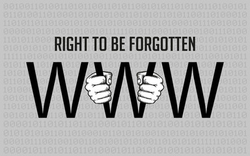
Full Reference : Frison-Roche, M.-A., Rights, primary and natural Compliance Tools, Working Paper, July 2020.
This Working paper is the basis for an article published in the collective book Compliance Tools .
____
There was a time when Regulatory techniques were above all only calculations of the best tarifications, taken up by monopolistic companies, while Compliance techniques were only obedience to all rules governing us. All this could therefore only be business of abacus and badine, used by engineers and consisted only of mechanical reflexes of "conformity" to all kinds of rules with the corset ensuring that everyone is bent in front of them
Systems have since evolved to integrate these prerogatives of each person: rights. Is this evolution really acquired? Maybe more effectively in Regulation Law than in its extension which is Compliance Law. This may be surprising since Compliance Law, in that it extends Regulatory Law in enterprises should, on the contrary, promote rights by meeting the enterprise, which is a group of people ....
In addition, if Regulation has long been the subject of a branch of Law in which rights have full place, the presentation of Compliance as "conformity", that is to say the proven assurance of obedience to all the applicable rules, leaves no space for the prerogatives of people, which appear rather as resistance to the obedience that would be expected of them. There again, the expectation of what would be a good ratio of conformity between behaviors and prescriptions would be obtained by a "design", data processing being the new form of calculation, improved by precision tools where the being human is not required
It would therefore be with regret, and probably because some constitutional jurisdictions still attach some value to fundamental rights that the systems of "conformity" of behavior to the rules make some room for the prerogatives of people, their more essential rights. It is sometimes said that this is part of the cost. It would therefore be as by "forcing" that rights would exist in Compliance systems, a kind of price that the effectiveness of Compliance must pay as a tribute to the Rule of Law principle
If in a poor definition Compliance is conceived in this only "conformity", leading to a landscape in which the behaviors of the people adjust to the rules governing the situations, Compliance being only the most "effective way" to ensure the application of the rules, in a mechanical perspective of Law, then it would effectively be necessary to reduce the prerogatives of people to a minimal part, because any "additional cost" is intended to disappear, even if it is produced here by constitutional requirements. In the looming battle between the effectiveness of the application of rules and the concern for the legal prerogatives of people who should above all obey and not claim their rights, especially their right not to obey , or their right to keep secret in Compliance techniques which is based on the centralization of information, the effectiveness of efficiency could only, by the very power of this tautology, prevail
The defeat would not be total, however, collaboration would still be possible and active between people availing themselves of their rights and Compliance Law. Indeed, in many respects, if rights have been recognized in Compliance systems, it is not only because Compliance Law, like any branch of Law, can only be deployed with respect for fundamental rights. kept by fundamental legal texts, but also because of the effectiveness of rights as " Compliance Tools".
Indeed, because they constitute a very effective "tool" to ensure the entire functioning of a system whose goals are so difficult to achieve, because every effort must be made to achieve these goals, the public authorities not only rely on the power of crucial operators, but also distribute prerogatives to people who, thus encouraged, activate the Compliance system and participate in the achievement of the "monumental goals". Rights can prove to be the most effective tools to effectively achieve the goals set, to such an extent that they can be considered as "primary tools" (I).
But it is necessary to be more ambitious, even to reverse the perspective. Indeed because all the Monumental Goals by which Compliance Law is defined can be reduced to the protection of people, that is to say to the effectiveness of their prerogatives, by a mirror effect between rights. given by Law to persons and the rights which constitute the very purpose of all Compliance Law, in particular the protection of all human beings, even if they are in a situation of great weakness, rights become a "natural tool" of Compliance Law (II).
Rights are the Compliance Law future.
Contre cela, la critique radicale, savante et fondée d'Alain Supiot, dans l'ensemble de son oeuvre et plus particulièrement dans La gouvernance par les nombres, 2015.
Sur la définition de l'entreprise comme un groupe de personnes qui se réunissent pour entreprise, v. le travail de référence d'Alain Supiot, par exemple son article d'introduction "L'entreprise...", dans l'ouvrage qu'il a dirigé L'entreprise dans la mondialisation ...., 2015 ...
Si l'entreprise pouvait renaître comme idée de cristallisation d'une idée commune entre des personnes, naturellement titulaires de droits subjectifs, exerçant ensemble leur liberté d'entreprendre pour réaliser un projet commun, ce qui correspond à la définition classique du contrat d'entreprise donnée à l'article 1832 du Code civil, cela renforcerait considérablement la présence des droits subjectifs dans le Droit de la Compliance et conforterait la nature humaniste de celui-ci.
En outre, dans une telle définition la loi de la majorité, qui n'est qu'une loi de fonctionnement d'une catégorie de sociétés que sont les sociétés de capitaux, deviendrait moins puissante, au profit des "droits propres" de tout associé (au-delà du cercle des sociétés de personnes), sans qu'il soit besoin d'aller chercher au-delà du cercle des associés ou titulaires de titres émis par la société ou l'entreprise (dit shareholders) et d'aller donner le "droit à la parole" à des personnes qui, parce qu'elles sont "concernées" (les "parties prenantes", les skateholders) ont désormais de plus en plus le "droit à la parole".
La Compliance by Design reflète ces tensions. Elles sont particulièrement bien décrites par Cécile Granier. V. ....
Contre cette conception de la légalité, qui prévoit tout et à laquelle il faudrait prouver par avance et que l'on se "conforme" entièrement, ce qui est contraire aux principes mêmes du libéralisme dont le principe est la liberté d'agir et non pas l'obéissance, Carbonnier affirme que les règles sont faites ne pas s'appliquer et qu'elles ne sont que le "mince vernis" des choses, qu'il convenait de se méfier de la "passion du Droit". V. not. son dernier ouvrage Droit et passion du droit sous la Vième République, 1995. Carbonnier est considéré comme le plus grand juriste français du XXième siècle. Il rédigea les lois qui réformèrent en profondeur le Code civil et publia des ouvrages sur "l'art législatif".
Au contraire, l'Etat de Droit n'est pas un coût extérieur au système de Compliance efficace, que celui-ci doit internaliser. Il est le fondement même du Droit de la Compliance. Voir dans ce sens la démonstration faite par le président de la Cour de Justice de l'Union européenne, Koen Laearnt, ..., in Pour une Europe de la Compliance, 2019.
Sur la démonstration comme quoi la Constitution, en ce qu'elle contient de l'incalculable, est broyée dans cette façon de faire, v. Alain Supiot, Intervention 2019.
Dec. 2, 2020
Editorial responsibilities : Direction de la collection "Droit et Économie", L.G.D.J. - Lextenso éditions (30)

Full reference: Racine, J.-B. (ed.), Le droit économique au XXIe siècle. Notions et enjeux, Coll. Droit & Economie, LGDJ-Lextenso, 2020, 726 p.
____
Summary of the book : Economic Law has not been so important than today, at a time of phenomenal changes in our societies. Economics are everywhere and Law is directly requested, to accompany, frame and finalize economics. Economic Law, which remain without definition, must be perceived now as a fundamental understanding tool of the realities of our time. This book proposes both to take stock of what Economic Law is at the start of the XXIst century and to give prospective analysis of what it could be in the years to come. It has been designed as a collective research based on 30 key-words (like the firm, the market, globalization, artificial intelligence). Each author has taken a notion by placing it in a logic of Economic Law. It is therefore on a transversal and thematic analysis that the book is based.
Economic Law is an open house. While it seeks diverse schools of thought, it gives pride of place to diversity. The book has been realized in this spirit. If it gather many authors from Nice's school, it is also open to other perspectives and opinions. Economic Law, through its research topics and analysis methods is in constant change. This research shows that economics is a topic which crosses every legal branches, beyond business Law.
The book is aimed at students wishing to familiarize themselves with Economic Law process, researchers intending to explore Economic Law themes in depth, and also practitioners who are looking for keys to understanding the current issues raised by the relationship between Law and Economics.
List of authors:
- Jean-Baptiste Racine
- Éric Balate
- Jennifer Bardy
- Jean-Sylvestre Bergé
- Walid Chaiehloudj
- Jacques Chevallier
- Bruno Deffains
- Catherine Del Cont
- Pascale Deumier
- Isabelle Doussan
- Aude-Solveig Epstein
- Marie-Anne Frison-Roche
- Giulio Cesare Giorgini
- Lemy Godefroy
- Marie-Angèle Hermitte
- Clotilde Jourdain-Fortier
- Gilles J. Martin
- Frédéric Marty
- Séverine Menétrey
- Mehdi Mezaguer
- Eva Mouial Bassilana
- Irina Parachkévova-Racine
- Thomas Perroud
- Valérie Pironon
- Patrice Reis
- Fabrice Riem
- Jean-Christophe Roda
- Mahmoud Mohamed Salah
- Fabrice Siiriainen
- Katja Sontag
- Marina Teller
- Anne Trescases
Read the table of contents (in French)
Read Jean-Baptiste Racine's introductive article (in French)
Read Marie-Anne Frison-Roche's article (in French) and read the bilingual working paper on which this article is based.
Dec. 1, 2020
Newsletter MAFR - Law, Compliance, Regulation
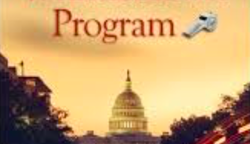
Full reference: Frison-Roche, M.-A., New SEC Report to Congress about Whistleblower Program: what is common between American and European conception, Newsletter MAFR - Law, Compliance, Regulation, 1st of December 2020
Read by freely subscribing other news of the Newsletter MAFR - Law, Compliance, Regulation
Summary of the news
Like every year since the adoption of the Dodd-Frank Act, the Securities and Exchanges Commission (SEC) and especially its Office of the Whistleblowers (OWB) handed to the Congress of the United-States a report about the success of its program concerning whistleblowers, especially estimated with the amount of financial rewards granted to them during the year. This report especially presents the amount granted to whistleblowers, the quality of the collected information and the efficacy of SEC's whistleblowers' protection process.
If Americans condition the effectiveness of whistleblowing to the remuneration of whistleblowers, Europeans oppose the "ethical whistleblower" who shares information for the love of Law to the "bounty hunter" uniquely motivated by financial reward and favor the former to the later, as it is proven in the French Law Sapin II of 2016 (which do not propose financial reward to whistleblowers) or the British Public Interest Disclosure of 1998 (which just propose a financial compensation of the whistleblower's losses linked to whistleblowing).
However, American and European conceptions are not so far from each other. As United-States, Europe has a real care for legal effectivity, even if, because of their different legal traditions, Americans favor effectivity of rights while European favor effectivity of Law. If it places effectivity at the center of its preoccupations, Europe should conceive with less aversion the possibility to financially incite whistleblowers. Moreover, United-States and Europe share the same common willingness to protect whistleblowers and if rewarding would enable a better protection, then Europe should not reject it, as shows the recent declarations of the French Defenders of Rights. It is not excluded that both systems converges in a close future.
Nov. 27, 2020
Thesaurus : Doctrine
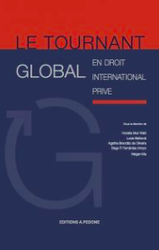
Full reference: Lagarde, P., Preface of Le tournant global en droit international privé, Muir-Watt, H., Biziková, L., Brandão de Oliveira, A., Fernández Arroyo, D. P., Ma, M. (ed.), Editions Pedone, 2020, pp. 9-14
Nov. 23, 2020
Interviews

Full reference: Frison-Roche, M.-A., Facebook: Quand le Droit de la Compliance démontre sa capacité à protéger les personnes (Facebook: When Compliance Law proves its ability to protect people), interview with Olivia Dufour, Actu-juridiques Lextenso, 23rd of November 2020
Read the interview (in French)
Read the news of the Newsletter MAFR - Law, Compliance, Regulation about this question
Nov. 18, 2020
Thesaurus : 05. CJCE - CJUE
Full reference: CJEU, 1st chamber, 18th of November 2020, decision C‑519/19, Ryanair DAC vs DelayFix
Summary of the decision
This decision of the CJEU of 18th of November 2020 is about the jurisdiction clause for any dispute in air transport contracts, here those of Ryanair. This decision is especially interesting about the question to know whether the professional assignee (collection company) of a debt whose holder was a consumer may or may not avail itself of the consumer protection provisions, canceling the scope of this type of clause.
The Court takes back the criteria and the solution already used in 2019 about a credit contract: the protection applies by the criterion of the parties to the contract and not of the parties to the disputes. Such a clause is effective only if the integrality of the contract is transferred to the professional, and not only some of the stipulations.
This Regulatory decision, through "private enforcement", incentivizes consumers to transfer their compensation claim (around 250 euros) to collection companies which, in turn, discipline airlines to stay on schedule.
Nov. 18, 2020
Teachings : Generall Regulatory law

La géographie est un élément qui demeure d'une grande pertinence dans la mise en place et la mise en œuvre des différentes régulations, ne serait-ce que parce que l'Histoire ne se pense pas sans la géographie, et que l'État ne se pense pas ni sans l'Histoire ni sans la Géographie, puisque dans un rapport consubstantiel avec le territoire et donc la clôture. Le Droit International Public repose sur cela, pour que les Etats, sujets de Droit international agissent dans un second temps dans l'espace international et notamment s'engagent les uns par rapport aux autres (traités internationaux).
Pourtant, confronter la Régulation et la Géographie conduit dans un premier temps à une aporie. En effet, à première vue, la Régulation, parce qu'expression de l'État, ne pourrait être que légitime sur un territoire national et, si on le décline juridiquement, qu'inséré dans le système juridique français. Or, le système juridique français étant construit d'une façon très particulière, sur la summa divisio du Droit public et du Droit privé, cela conduit certains à croire que le Droit de la Régulation serait une sorte de sous-branche du Droit public, puis à concentrer à titre principal l'attention sur la question des Autorités administratives indépendantes (AAI), puisque cela est familier au Droit public, tandis que les économistes bâtissent les règles qui gouvernent à travers le monde la Régulation sur un modèle qui serait totalement uniforme quelque soit l'endroit où il s'applique. Ce décalage conduit à ce qui peut apparaître à certains comme une sorte d"invasion" des catégories anglo-saxonnes, ne serait-ce que par le vocabulaire utilisé, lequel transporte avec lui les concepts du droit anglo-américain et ses méthodes. Il est vrai qu'en matière de régulation, les États-Unis, dont le droit a ses racines dans le droit britannique, a tendance (parce qu'ils en ont la puissance de faire) a appliquer leur droit d'une façon de fait extraterritoriale, par le vocabulaire et les concepts. On mesure ainsi que la puissance de droit dépend souvent de la puissance de fait. A cela, s'ajoute le relais de l'autorité, celle de la Cour suprême des États-Unis, par exemple, ou de la Cour de Justice de l'Union européenne. L'on finit par se dire que tout est, en matière de régulation, affaire de "coutume", c'est-à-dire de façon où les choses se font là où elles se font (conception allemande classique).
Dans cette grande dispute des territoires, l'on ne peut échapper à ces sorties, non seulement en raison des jeux de pouvoirs, mais parce que la Régulation est un appareillage technique sorti des objets, lesquels ne tiennent pas dans les frontières, la frontière étant une notion juridique affaiblie par le Droit économique, voire ennemie de celle-ci. Le rapport entre la Régulation et la Géographie va dès lors changer selon les secteurs, ce rapport demeurant étroit si l'objet technique régulé est corporel et immobile, le rapport se brisant si l'objet est immatériel. Mais la financiarisation de l'économie remet en cause cette gradation puisqu'elle dématérialise la corporéité de l'économie.
Plus encore, la question est de savoir si la Régulation doit prendre acte ou doit contrer l'habileté des opérateurs qui peuvent se soustraire au territoire, par le seul fait de bouger ou, par exemple, en créant des personnes morales ou bien en n'en créant pas (par l'action économique extérieure via de simples succursales non responsables). Si l'on estime que la Régulation est une théorie libérale qui pallie les défaillances techniques de marché, le Droit laisse cette habileté se déployer, voire on l'encourage. Si le Droit de la Régulation défend d'autres objectifs, cette habileté sera contrée. Des cas illustrent ces habiletés qui se confrontent, celles des opérateurs, des politiques et des régulateurs : le cas Péchiney- Triangle ou le cas BNPP, par exemple.
Se reporter au plan de la leçon 5
Consulter les slides de la leçon 5
Accéder au plan général du cours.
Consulter la bibliographie générale du cours
Consulter le Glossaire du Droit de la Régulation et de la Compliance
Consulter la Newsletter MAFR - Law, Compliance, Regulation
Consulter ci-dessous la bibliographie spécifique à la Géographie & la Régulation: